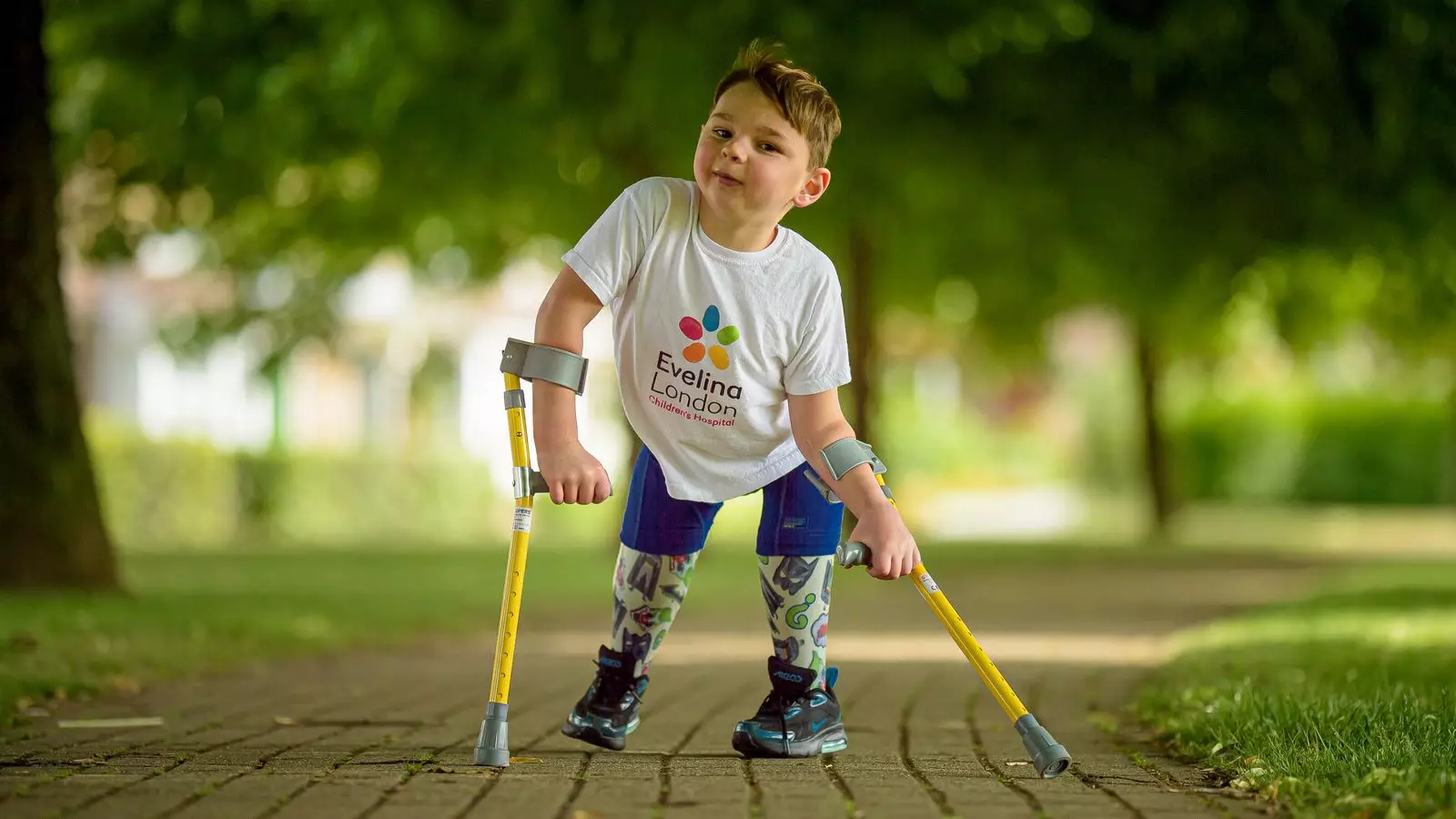When it comes to the protection of our most vulnerable citizens—our children—there is an implicit expectation that society will uphold its duty to shield them from harm. The harrowing case of Tony Hudgell—a boy who suffered unimaginable abuse at the hands of Jody Simpson and Anthony Smith—brings this ethical responsibility into sharp focus. It’s truly appalling that these two individuals, who inflicted terror upon an innocent infant, are being allowed to reintegrate into society with little regard for the lasting scars they have left behind. The decision concerning Simpson’s early release from prison is more than troubling; it is a profound miscarriage of justice.
Tony was only 41 days old when he became the target of savage abuse. The sheer brutality of what he endured is enough to chill the hearts of even the toughest individuals. Multiple fractures, organ failure, and eventual amputation of both legs—a synopsis of his trauma reads like a horror story. In the aftermath of this unspeakable cruelty, society rallied, expressing outrage and demanding substantial repercussions for child abusers. Yet here we are, discussing the premature release of one of the culprits, a decision that raises more questions than it answers.
The Flaws in the Parole System
The mechanisms surrounding parole are intended to balance the need for rehabilitation against society’s imperative to protect itself. In theory, it sounds reasonable; in reality, it can fall woefully short. The Parole Board claims that their decisions are grounded in comprehensive evaluations of risks, yet critics are left to wonder—how does one weigh the life-altering impact of child abuse against the prospect of an individual’s reform? Can a criminal’s transformation truly outweigh the lifelong suffering of their victim?
In announcing Simpson’s release, the Parole Board stated that attention was given not only to her original crime but also her behavior while incarcerated and any changes exhibited during that period. One could argue, however, that demonstrating a change in behavior should not equate to the right to walk free—especially in cases marked by heinous acts like those committed against Tony. What does it say about our judicial system when even the most reprehensible offenses offer pathways back into society after a mere fraction of the consequences have been served?
The Impact on Victims and Society
Tony’s life remains a testimony to the enduring repercussions of child abuse, yet it is also intertwined with messages of resilience. His evolution from victim to an advocate for others in similar predicaments is truly inspiring, representing a beacon of hope amid despair. However, with the news of Simpson’s impending release, the shadows of trauma loom larger. His adoptive mother, Paula Hudgell, openly criticized the decision, highlighting the emotional turmoil that this situation brings forth for Tony. It is a haunting reality that even as he flourishes, he must coexist with the painful legacy of his early years.
The societal implications of Simpson’s release extend beyond Tony—this case serves as a sobering reflection of our values. By permitting her to rejoin the community, we signal a troubling message that the consequences for such brutality may not be as severe as society once believed. It fosters a sense of insecurity, especially among those who strive for better protective measures for children—a sentiment echoed by politicians like Tory MP Tom Tugendhat, who emphasize the necessity for stronger safeguards against child abusers.
Redefining Justice for Children
This situation forces a reassessment of justice as it pertains to child abuse. Many voices are clamoring for legislation that enacts stricter penalties for offenders, leading to greater public safety and, importantly, justice for victims like Tony. The echoes of public outcry cannot be ignored; they illuminate a dissonance between the current judicial handling of child abuse cases and the expectations of a society that wishes to see these heinous acts punished with unyielding severity.
Collectively, we must demand more robust systems to prevent such early releases, advocating for laws that truly reflect the gravity of these crimes. Moreover, we cannot afford to overlook the voices of victims—each plea and cry for justice must resonate through the legal corridors. As the case of Jody Simpson illustrates, reform must extend beyond mere discourse; it must materialize into actionable, undeniable change. The scars left on those like Tony Hudgell are a potent reminder that our fight for justice is far from over.


Leave a Reply